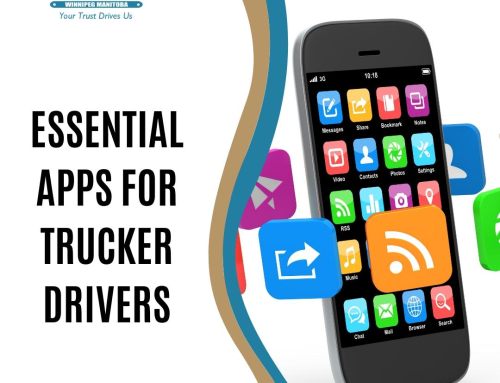 There was a time in the trucking industry when dispatchers were seasoned, experienced truck drivers who retired from the road and joined the office team. They knew what life on the road was all about because they had lived it. They understood the issues, conflicts and daily responsibilities of the job.
There was a time in the trucking industry when dispatchers were seasoned, experienced truck drivers who retired from the road and joined the office team. They knew what life on the road was all about because they had lived it. They understood the issues, conflicts and daily responsibilities of the job.
Today, many times you will find that dispatchers are often young people, highly skilled with computers, and planning but they have no idea what a truck driver does every day. Often times, they are so new to the industry and culture, that they don’t even know how to best work with truck drivers, who, let’s be honest here, aren’t always the easiest people to work with.
As a professional truck driver, it is important for you to understand this. it will give you some new perspective of why your dispatcher doesn’t understand your grief or irritation. It’s not because they are stupid or ignorant, it’s because unless you have actually lived it, it can be hard for non-drivers to fully understand the life. Things like not being able to find parking or being stuck in traffic for three hours as you crawl through a city’s construction zone are not daily routines for people who don’t live on the road.
On the flip side, professional dispatchers should take an active interest in what truck drivers’ have to deal with out in the real world – off the simplified computerized dispatch management software.
Communication is the Key to Getting Along
Dispatchers, and drivers, both know that getting a load from point A to point B isn’t an easy job and there are a lot of things happening in the background to make it happen. The only way to succeed is for both parties to actively communicate effectively and efficiently with each other. Without proper communication from dispatch, driver’s are stranded on the road without the key resources they need to complete their job. On the flip side, dispatchers are left hanging, not what to tell clients or when to book reloads and so on.
The technology at our fingertips has made it easier for direct communications between drivers out on the road and dispatch at the home terminal. A combination of different communication platforms is ideal when it comes to working together. Satellite communication, texting, emails and phone calls are all viable forms of communication, but using the right platform for the right type of message will make sure that the team runs smoothly and efficiently.
Pick Up the Phone
Despite the digital age and increased use of text and email, some messages are simply better delivered by phone. There are many intricate and sometimes unusual details surrounding a load. Things can get complicated pretty quickly if effective communication isn’t used. When there are multiple steps or unusual circumstances, start by picking up the phone and talking directly with the driver or dispatcher. This direct form of communication is often quicker, is less confusing and leads to a better understanding. A follow-up email can also be sent just to rehash the details, but at least both driver and dispatcher will have a solid understanding of the information and details.
Phone calls should also be made when there is an immediate problem or issue as texts are often ignored, especially while drivers are driving. Phone calls can at least be answered with the use of a hands-free device.
Texting is a Valuable Resource
Texting is a fast and reliable way to communicate. Both drivers and dispatchers can read texts at their own convenience instead of being forced to take a call at an inappropriate time. The added bonus of using texting you don’t have to pay for every character like you do with the Satellite System. This means that, without additional cost to the company or the driver, messages can be fully explained instead of abbreviated and choppy to avoid charges.
Email is Great for Long Winded Communication
When it comes to communication between dispatchers and truck drivers, emails are often underutilized. Email provides an ideal solution for long, detailed messages – you know, the type of message that is too long for texting. Because emails are not used all that often, nor are they an instant form of communication, it is best to let the driver or dispatcher know that you are sending the details via email, just to make sure everyone is on the same page.
Satellite is Good for Short Info and Tracking
For all the wonderful things Satellite communications have offered to the trucking industry, there are more effective ways of communicating with drivers. Satellite communications are good for load tracking, so you know where your drivers are, and macro information such as delivery status updates and short, easy to understand load information. When it comes to more complex communications, it’s best to use one of the other forms of communication.
Above All Else, Be Understanding of One Another
The best way to communicate with someone is to be understanding of the other’s position. Dispatchers need to understand that drivers are out there on the road, often dealing with less than ideal situations. They have to go through construction, weigh stations, inspections and any number of other things that may impact their timeliness, performance, and mood.
Drivers need to understand that dispatchers are also dealing with less than ideal situations, albeit in a different setting. They have an entire fleet of drivers to find loads for, they have clients to work with, load brokers to deal with and many more stressful and timely matters that build up stress and impact performance and mood.
Before you blow your fuse, try putting yourself in each other’s shoes; try to be understanding of the demanding, stressful jobs you both have. Remember to work together and communicate effectively.





